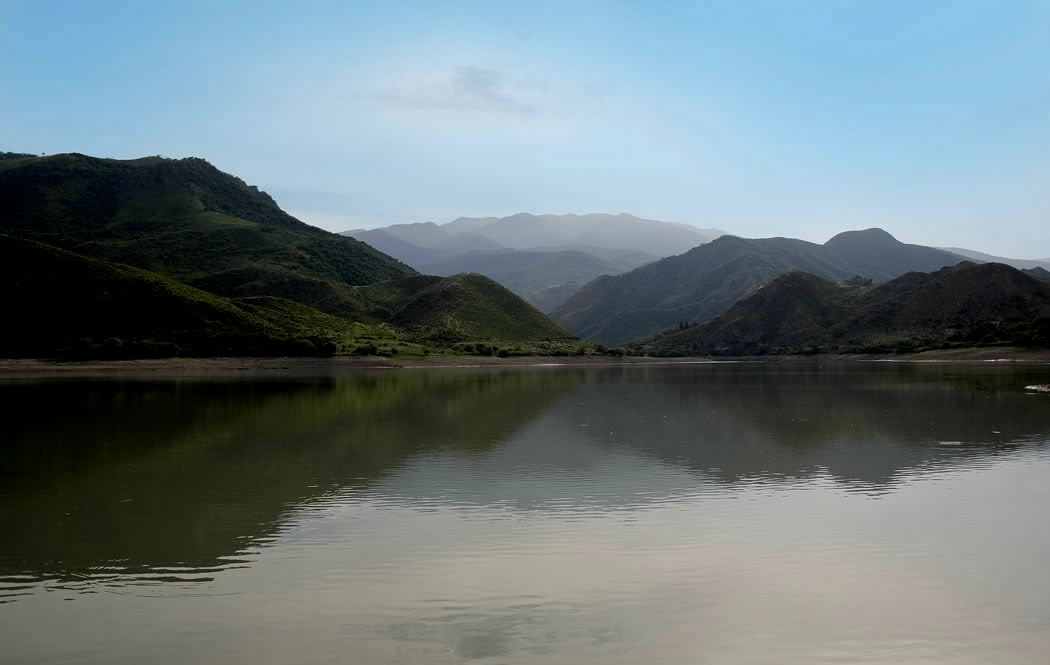Expert proposes resolution for Central Asia’s enduring water problems

By Trend
Since the collapse of the Soviet Union, donors have spent
millions trying to solve Central Asia’s chronic water and energy
problems, but Kyrgyzstan, Tajikistan and Uzbekistan have wasted
this opportunity, director of International Crisis Group’s Central
Asia project, which recently published “Water Pressures in Central
Asia” report, told Trend.
“A new strategy is called for, both in the region and by those who
would help it, including Western states and Russia,” Deirdre Tynan
said.
After more than two decades of political independence, millions of
people still have inadequate access to clean water in the Central
Asia, according to the expert on the region.
Kyrgyzstan and Tajikistan could again face energy shortages this
year, despite huge potential as producers of hydroelectric power,
Tynan believes. She noted that water supplies have even triggered
cross-border skirmishes in the Ferghana Valley. These have been
limited so far. But they have the potential to trigger a chain
reaction that brittle Central Asian governments would struggle to
contain without significant loss of life.
According to the expert, Kyrgyzstan, with low water levels in the
Toktogul reservoir, faces a real dilemma. The country’s meager
budget struggles to buy power elsewhere. Last winter, people were
told to buy coal for heating their homes. But 37 percent of the
population already lives in poverty and many are live in apartment
blocks with no chance of an open fire. In impoverished Batken
province, people collected firewood and animal dung to burn. The
lights stayed on in Bishkek, but only just. Plans to perhaps raise
the cost of electricity this year will cause further discontent and
anxiety.
In Tajikistan, ordinary people often live with three hours of power
a day or less while the lights in the Italianate palazzos of the
political and economic elite glitter all year round, Tynan said.
Such failure of basic services and falling living standards are
fomenting anger. This adds up to a new threat to state stability at
a time when popular disillusionment growing.
Despite such looming dangers, regional states are not changing
course, the expert noted. Previous water-sharing agreements,
largely modeled on the Soviet-era arrangements, are ineffective
today.
“Upstream Kyrgyzstan and Tajikistan and downstream Uzbekistan see
each other not as partners managing a shared resource, but as
opponents battling to secure mutually exclusive gains at the
expense of their neighbors. There may be regular meetings and a
slew of post-Soviet water-sharing agreements, none of which are
legally binding, but Kyrgyzstan, Tajikistan and Uzbekistan are
drifting ever further apart,” she said.
The expert noted that irrigation-intensive cotton remains the Uzbek
government’s main source of foreign currency. If water is withheld
in the Toktogul reservoir this summer, thousands of Uzbek farmers
will be hard hit.
She reminded that the Uzbek government has a history of using
economic blockades to pressure its neighbors. Tashkent reckons that
Bishkek and Dushanbe might be planning to do the same with water,
and could take military action against new hydropower plants and
reservoirs currently planned in Kyrgyzstan and Tajikistan.
“Uzbek President Islam Karimov has warned of war, and Russian,
Western, and local officials do not think he is bluffing,” Tynan
said.
The problem is not so much that there is not enough water, but how
it is used, Tynan stressed.
“The outlines for an eventual deal that donors and the
international community should press for are clear. Uzbekistan
should convincingly promise to end the massive wastage and loss of
water due to outdated irrigation methods and bad farming practices.
At the same time, Kyrgyzstan and Tajikistan must commit to manage
the proposed reservoirs of water in a responsible manner. Rooting
out mismanagement and corruption would be a start,” she said.
For their part, international donors – of which Russia is a part,
as a member of the World Bank and the Organisation of Security and
Cooperation in Europe -- must act to insist on prosecutions for the
embezzlement of millions of dollars in aid money for water
projects, the expert noted. New projects should aim to work through
the smallest, most local units of government possible. Continued
funding of urban and rural water-supply projects should be
contingent on the successful application of anti-corruption
measures.
“The funders of large scale hydropower plants should insist on
rigorous financial oversight and overall reform of the energy
sector. Russia, as the leading investor in large scale hydropower
plants in Kyrgyzstan, should insist on rigorous financial oversight
and overall reform of the energy sector,” Tynan said.
The Kambarata-1 and the Upper Naryn Cascades have the potential to
transform energy production in Kyrgyzstan, but with estimated costs
in excess of $3 billion it is vital that these projects do not
become a vehicle for graft or derailed by bureaucracy, the expert
noted.
A new regional agreement on water will likely take a long time,
however, Tynan believes.
“As a start, Kyrgyzstan, Tajikistan and Uzbekistan should focus on
more modest bilateral agreements on shared water. They should
accelerate the long-running process of border delimitation and back
away from confrontation in disputed areas. Cross-border
infrastructure and water-management projects would also go some way
to alleviating tensions in the Ferghana Valley. If better bilateral
agreements can be brokered, they could eventually form a platform
for a regional one,” she said.
Russia, and other members of the international community and donors
should use all the leverage they have to persuade them to take this
path, reverse the dynamics that might lead to armed conflict and
lay the foundations of shared prosperity and equitable water
supplies instead, according to Tynan.
---
Follow us on Twitter @AzerNewsAz
Here we are to serve you with news right now. It does not cost much, but worth your attention.
Choose to support open, independent, quality journalism and subscribe on a monthly basis.
By subscribing to our online newspaper, you can have full digital access to all news, analysis, and much more.
You can also follow AzerNEWS on Twitter @AzerNewsAz or Facebook @AzerNewsNewspaper
Thank you!
